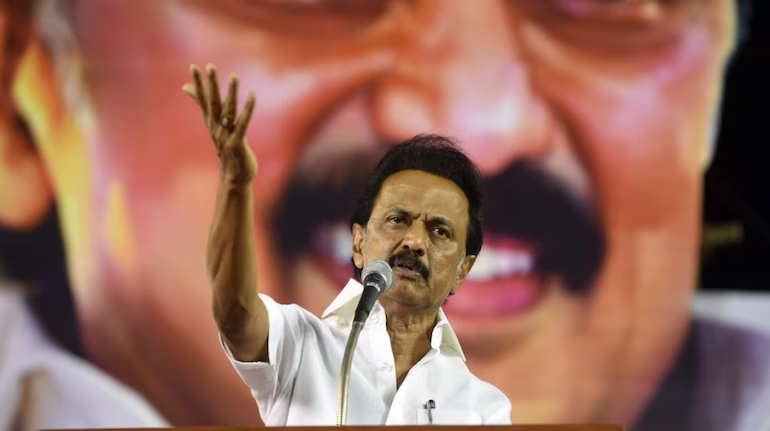Introduction
In a significant escalation of the ongoing constitutional tussle between Tamil Nadu and the Centre, Chief Minister MK Stalin has strongly opposed President Droupadi Murmu’s letter to the Supreme Court. The letter, invoking Article 143 of the Constitution, seeks clarification on a judgment that imposed timelines on the Governor and President to assent to state Bills. The backdrop: the Tamil Nadu government’s legal battle over 10 pending Bills stalled by Governor RN Ravi.

1. What Triggered the Supreme Court Case?
The DMK-led Tamil Nadu government had approached the Supreme Court over the prolonged delay in gubernatorial assent to 10 state Bills. The apex court ruled that the Governor’s delay was arbitrary and unconstitutional, mandating a three-month window for decision-making if Bills are passed a second time by the legislature.
2. President’s Article 143 Reference
President Murmu asked the court to clarify whether constitutional timelines can be enforced on the Governor and whether the Governor is bound by the Council of Ministers’ advice under Article 200. She also raised the question of whether the Governor’s discretion is justiciable, citing Article 361 that grants immunity to constitutional heads.
3. MK Stalin’s Strong Rebuke
CM MK Stalin called the President’s move a “desperate attempt” to dilute a clear Supreme Court ruling. He alleged that the Union Government is using Governors as political agents to undermine opposition-ruled states. Stalin’s public post on X (formerly Twitter) included pointed questions to the BJP and accused the Centre of distorting federal values.
4. The Core Legal Questions Raised
- Can Governors delay Bills indefinitely in the absence of prescribed timelines?
- Is it constitutional for the Union to bypass judicial guidance on legislative matters?
- Should the President act contrary to the judiciary’s advice in matters of legality?
The President’s reference aims to revisit these complex intersections of executive authority and judicial oversight.

5. What the Supreme Court Had Ruled Earlier
The court had ruled that only the judiciary can determine the constitutionality of Bills. It advised that the President and Governors must act swiftly and, if in doubt, consult the judiciary rather than stall the process indefinitely. Importantly, the court emphasized that executive discretion must be restrained in purely legal matters.
6. The Political Implications
This legal battle is not merely academic. It comes amidst increasing conflict between opposition-led state governments and BJP-appointed Governors. By rallying non-BJP states, MK Stalin is positioning Tamil Nadu as the epicenter of a federalist resistance against central overreach.
7. What’s Next: Constitution Bench or Status Quo?
With Chief Justice BR Gavai newly sworn in, the Supreme Court faces a pivotal choice—either uphold the two-judge bench’s ruling or form a Constitution Bench to delve deeper into the powers and limits of Governors and Presidents under Articles 200 and 143. Either way, this case could redefine India’s Centre-State dynamics for years to come.
Conclusion
MK Stalin’s reaction to the President’s Supreme Court reference has reignited debates over constitutional interpretation, executive overreach, and federalism. As legal and political stakeholders await the apex court’s next move, the country watches what could become a defining moment for the Indian Republic’s federal framework.
Related Read: Explained: What Is Article 200 of the Indian Constitution?
External Source: Read Article 143 of the Indian Constitution – Indian Kanoon









